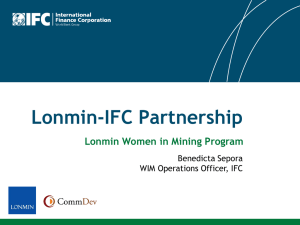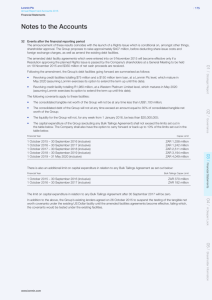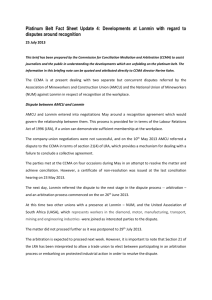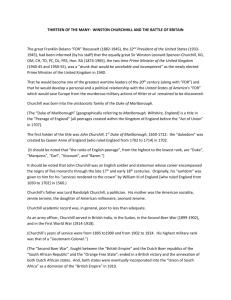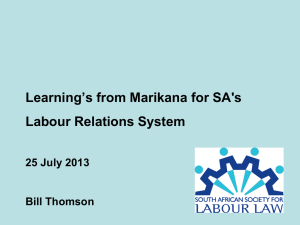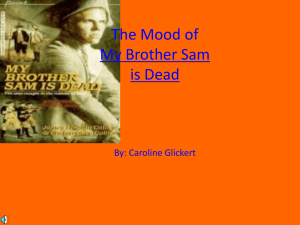Marikane Crisis Management Questioned
advertisement
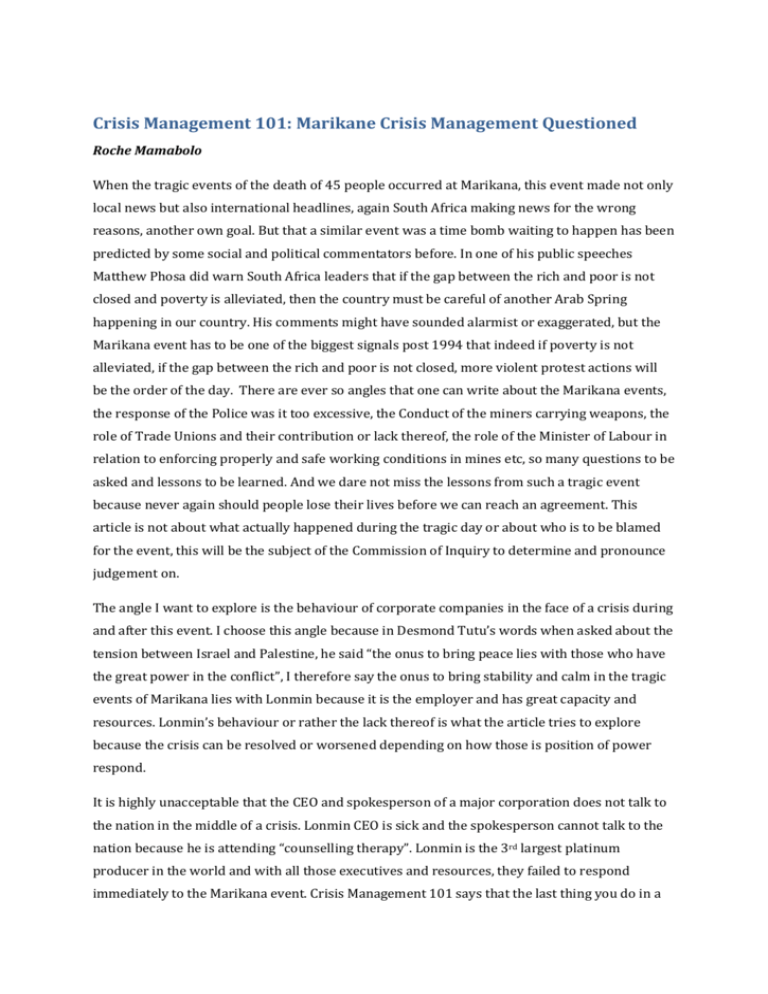
Crisis Management 101: Marikane Crisis Management Questioned Roche Mamabolo When the tragic events of the death of 45 people occurred at Marikana, this event made not only local news but also international headlines, again South Africa making news for the wrong reasons, another own goal. But that a similar event was a time bomb waiting to happen has been predicted by some social and political commentators before. In one of his public speeches Matthew Phosa did warn South Africa leaders that if the gap between the rich and poor is not closed and poverty is alleviated, then the country must be careful of another Arab Spring happening in our country. His comments might have sounded alarmist or exaggerated, but the Marikana event has to be one of the biggest signals post 1994 that indeed if poverty is not alleviated, if the gap between the rich and poor is not closed, more violent protest actions will be the order of the day. There are ever so angles that one can write about the Marikana events, the response of the Police was it too excessive, the Conduct of the miners carrying weapons, the role of Trade Unions and their contribution or lack thereof, the role of the Minister of Labour in relation to enforcing properly and safe working conditions in mines etc, so many questions to be asked and lessons to be learned. And we dare not miss the lessons from such a tragic event because never again should people lose their lives before we can reach an agreement. This article is not about what actually happened during the tragic day or about who is to be blamed for the event, this will be the subject of the Commission of Inquiry to determine and pronounce judgement on. The angle I want to explore is the behaviour of corporate companies in the face of a crisis during and after this event. I choose this angle because in Desmond Tutu’s words when asked about the tension between Israel and Palestine, he said “the onus to bring peace lies with those who have the great power in the conflict”, I therefore say the onus to bring stability and calm in the tragic events of Marikana lies with Lonmin because it is the employer and has great capacity and resources. Lonmin’s behaviour or rather the lack thereof is what the article tries to explore because the crisis can be resolved or worsened depending on how those is position of power respond. It is highly unacceptable that the CEO and spokesperson of a major corporation does not talk to the nation in the middle of a crisis. Lonmin CEO is sick and the spokesperson cannot talk to the nation because he is attending “counselling therapy”. Lonmin is the 3rd largest platinum producer in the world and with all those executives and resources, they failed to respond immediately to the Marikana event. Crisis Management 101 says that the last thing you do in a crisis is to bury your head in the sand. 45 people are dead, if the CEO is sick, then it is prudent that the Chairman or someone from the Board of directors or executive management come out and show leadership by addressing the workers, the nation, the community, that’s precisely why they are paid millions in salaries, to also deal with difficult situations. The Lonmin management is a classic example of how not behave in a crisis. They desensitised themselves from the situation, did not avail anyone to address the nation, instead the first interview we see is of Lonmin spokesperson on BBC. Lonmin missed the opportunity to write its own script and version of the story in this sad saga by timely communicating and calming the storm. History will reflect that Lonmin vanished and failed to show leadership on such a tragic event, giving more credence and justification that protests by Occupy Wall Street movements are valid, that indeed corporate companies are greedy and only think of their own interests at the expense of workers and other less powerful stakeholders. A few days later after the Marikana events, enters 1Time’s crisis. 1time has applied for business rescue package because it was “financially distressed”. When news of the rescue package came out, 1Time CEO Mr Black Komani was visible, he conducted interviews on radio and TV on the day the news broke out. Even though his explanation of the why 1Time was in such dire straits and the reasons why they needed a rescue package was not convincing, at the very least he was visible and took the bull by the horn. Unlike Lonmin he didn’t bury his head in the sand and avoided the media. He was visible , he became the face of 1Time and showed responsibility and courageous leadership. Yes the two 1time and Marikana situations are different, but given the severity of the Marikana events, Lonmin management should have been more visible than 1Time CEO. Lonmin management and Board should make time and invest in the case-study of Pick’n Pay Sean Summers on how he handled the food poisoning crisis when it broke out. He told the truth. The first principle of any crisis management situation is to tell the truth, and tell it first and fast. He apologised for the incident and accepted responsibility; He outline the exact problem, the nature of the problem and the full extend of the problem; He briefly outlined a program of action to remedy the crisis, and the possible times and deadlines it is projected to be resolved and he gave daily regular feedback on TV and Radio about the status and progress made on the event; He was visible, he made regular if not daily TV and Radio interviews. In fact he called in on Radio Shows to give feedback; and He became the single face of Pick’n Pay during this crisis. This made sure that only one source of information is communicated to the public, and this also ensured that duplicate or confusing messages communicated to the public. There is a high risk of miscommunication or confusion if two or three people communicate one event. The mistake Pick’n Pay made is the time window period between them knowing about the threat and public action was long. Pick’n Pay did not communicate to the public the food poisoning immediately when it detected it, instead it waited for 7 weeks when the event claimed its first victim. But once the event went public, Sean Summer handled the entire episode with the candour and professionalism it required. Lonmin and how it handled this saga does not differ much from how the government handled the situation when former president Nelson Mandela went to hospital for his routine medical check-up and the entire episode unnecessarily deteriorate into a mini suspense drama and sent concerns about Mandela’s health throughout the country and the world about his condition simply because of failure to communicate by the leadership. Another crisis mismanagement event is the BP oil spill in the gulf of Mexico where the BP CEO was fired because of his lack of leadership, in one report he was overheard saying that the oil spill was taking away his golfing time. Communication is key, and most importantly during a crisis. Failure to communicate during a crisis risks exacerbating the crisis. Everything rises and falls with leadership. Leaders should communicate more during difficult times, this is what Mandela means when he says leaders must lead from the front during difficult times and can take a back-seat and empower others to lead thereby lead from the back during easier times. Lonmin leadership has failed to lead from the front the difficult situation adding to another case study of what not to do during a crisis.
